The HP S700 And S700 Pro SSD Review
by Billy Tallis on September 7, 2017 9:00 AM ESTMixed Random Performance
Our test of mixed random reads and writes covers mixes varying from pure reads to pure writes at 10% increments. Each mix is tested for up to 1 minute or 32GB of data transferred. The test is conducted with a queue depth of 4, and is limited to a 64GB span of the drive. In between each mix, the drive is given idle time of up to one minute so that the overall duty cycle is 50%.
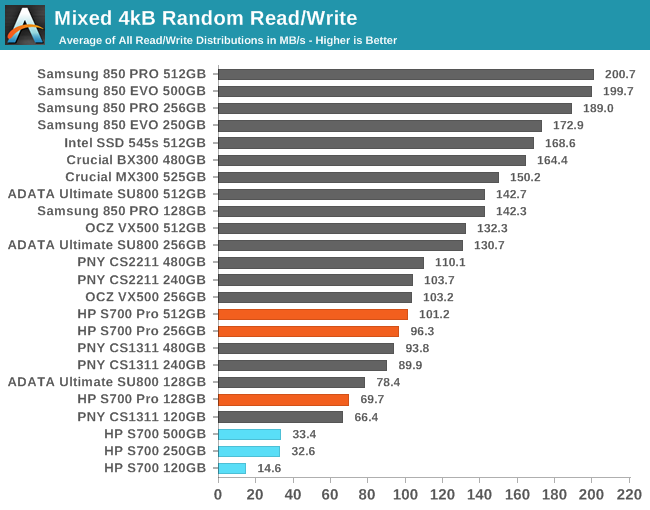
The mixed random I/O performance of the larger S700 Pros is below average, and also slower than the ADATA SU800 in specific. The S700s are the slowest of all, with the larger two offering half the performance of the slowest SSD with DRAM, and the 120GB S700 being less than half as fast as its larger siblings.
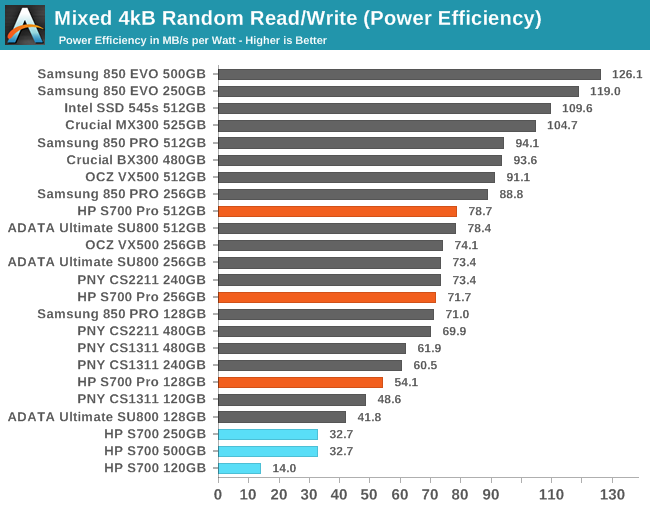
The power efficiency scores of the HP S700 aren't quite as bad as the performance scores, but it's still at the bottom of the chart and clearly worse than any SSD with DRAM. The S700 Pro is pretty efficient for a TLC-based drive, but is beat by the Crucial MX300 and Samsung 850 EVO.
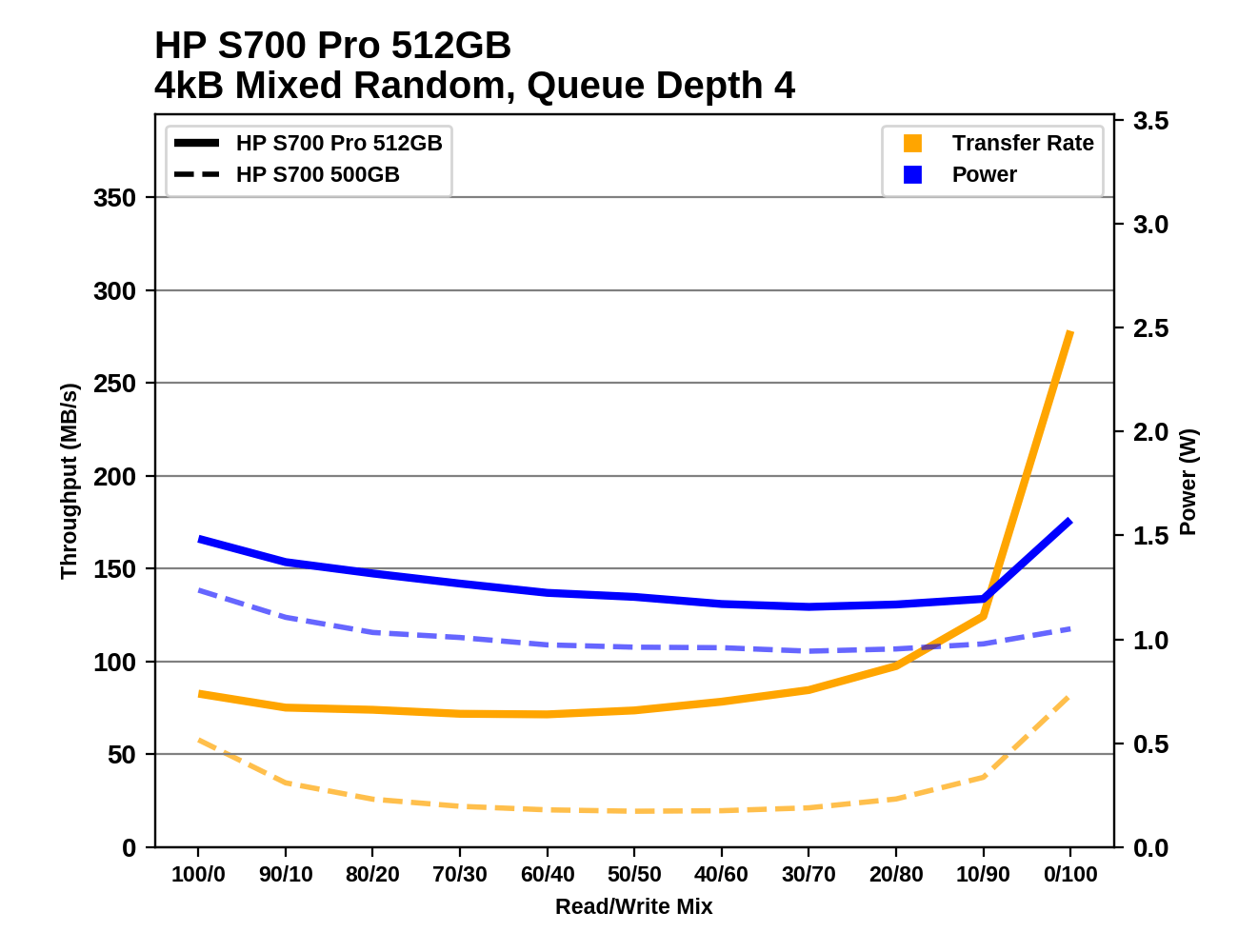 |
|||||||||
The performance of the S700 Pro only drops a little bit during the early phases of the mixed random I/O test, then rebounds gradually before spiking at the very end when every operation is a cacheable write. The 128GB S700 Pro runs out of SLC write cache space before the test is over and doesn't show the same peak in performance (though the spike in power consumption reveals the background work happening). The S700s start out slow, lose proportionally more of their performance in the early phases of the test, and only experience a small peak in performance at the end when every operation is a write.
Mixed Sequential Performance
Our test of mixed sequential reads and writes differs from the mixed random I/O test by performing 128kB sequential accesses rather than 4kB accesses at random locations, and the sequential test is conducted at queue depth 1. The range of mixes tested is the same, and the timing and limits on data transfers are also the same as above.
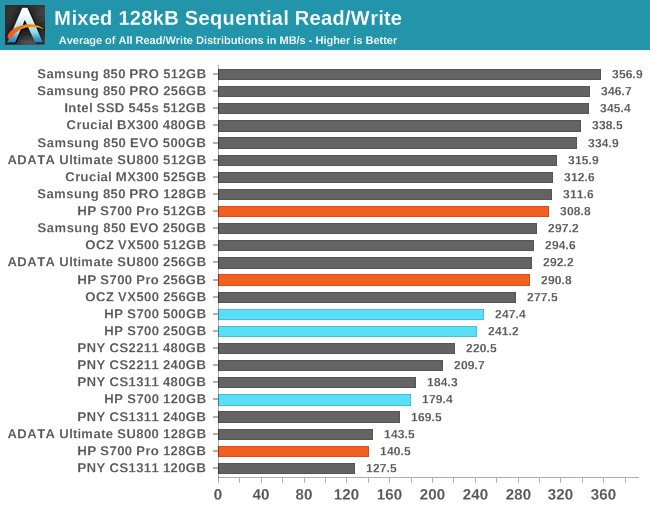
The mixed sequential I/O performance of the larger two HP S700 Pros is decent, and thanks to their great read speed the S700 isn't too far behind. The 120GB S700 scores significantly higher than the 128GB S700 Pro.
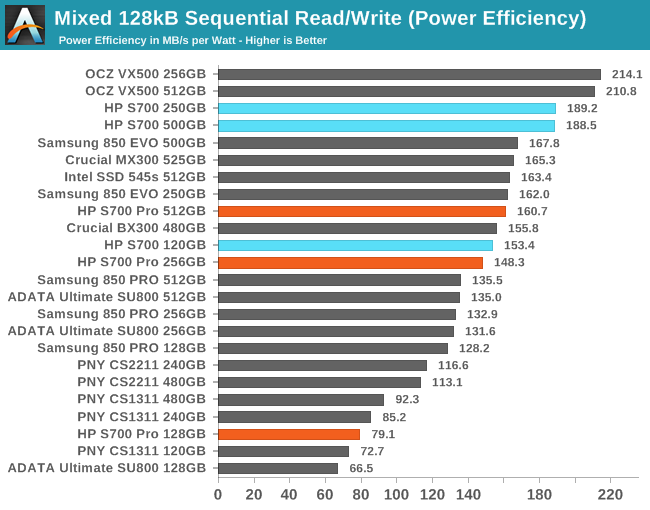
The power efficiency of the larger two S700s is great, but not quite up to the level of the OCZ VX500. The smallest S700 and the larger two S700 Pros are a bit above average in efficiency. The 128GB S700 Pro is near the bottom of the chart, but is more efficient than the SU800.
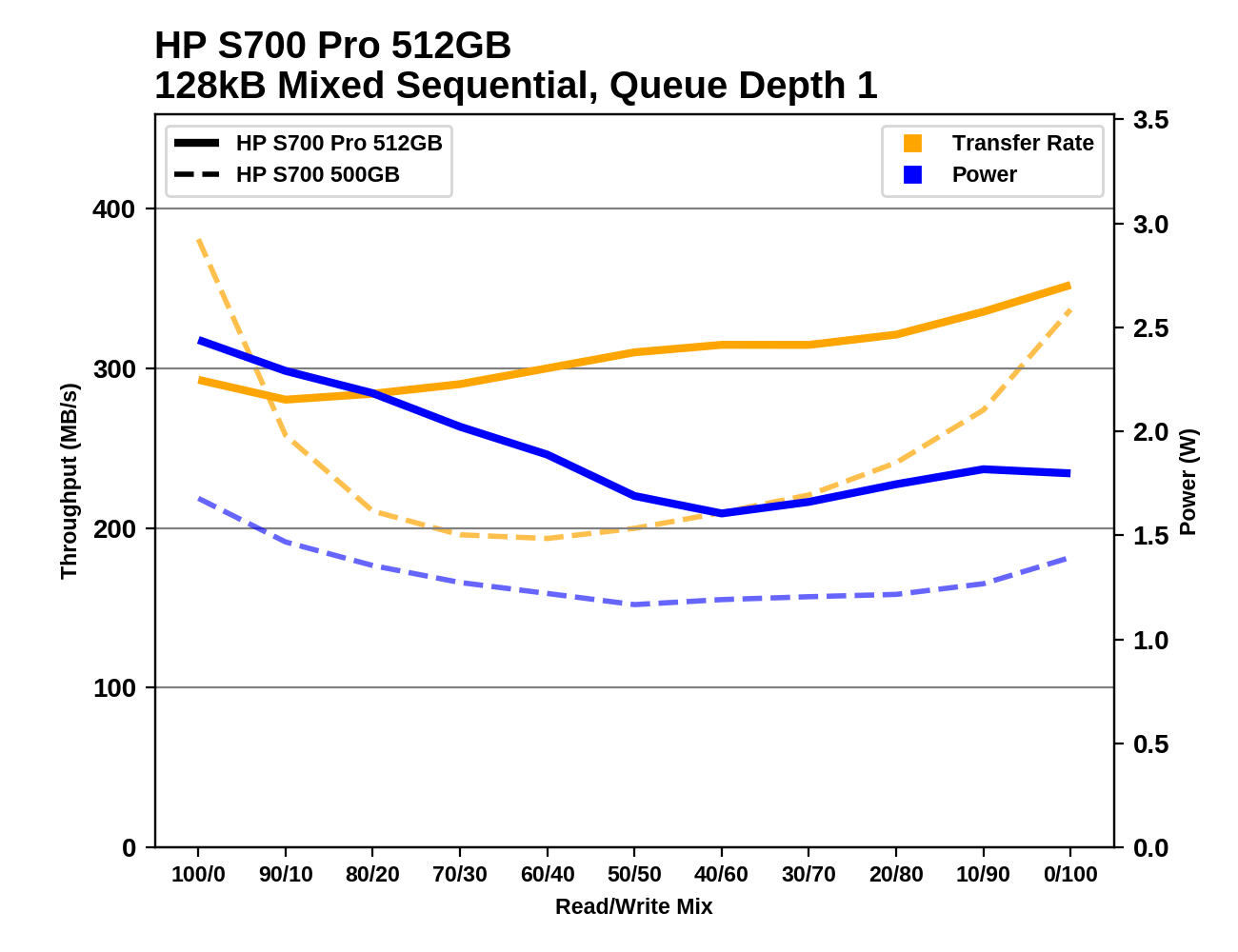 |
|||||||||
The larger two S700 Pros hardly lose any performance when writes are first introduced early in the test, and gradually speed up from there. The larger two S700s show a pronounced bathtub curve for performance, but they're fast enough at either end of the test that the overall performance is decent. The smallest two HP drives suffer from unsteady and low performance as they are performing garbage collection almost from the very beginning of the test.










54 Comments
View All Comments
superunknown98 - Friday, September 8, 2017 - link
Did anyone else notice the ADATA SU800 512GB was faster than the HP S700 Pro 512GB for the majority of tests, yet the conclusion said the HP was faster? Granted the HP's of lesser size were faster than their counter parts.petar_b - Tuesday, September 12, 2017 - link
Useless drive. I wouldn't like that drive/controller in my server LOL... Even cheapest Crucial or Micron drives have DRAM at least....morphix - Sunday, April 1, 2018 - link
it's $115 for 512GB @walmartportedbikes - Monday, February 25, 2019 - link
I just had the most annoying failure ever with this HP Pro 512GB drive, formatted it and when trying to install W10 it just died and gave me an I/O device error, it will not be recognized by the bios if connected to a SATA port, but it will be recognized by windows if connected via USB with an enclosure, still not able to format it, or do anything with it, I/O Device error everytime... First and last time I buy one of these drives, they do not even come with trim software, I have never had a problem like this with Samsung, Intel, or PNY SSDs... first time I use HP and failed miserably... reading reviews on Amazon these drives fail as fast as 3 months to 1 year and HP warranty sucks. For $15 extra get an 860 Evo and call it a day, really not worth the savings.